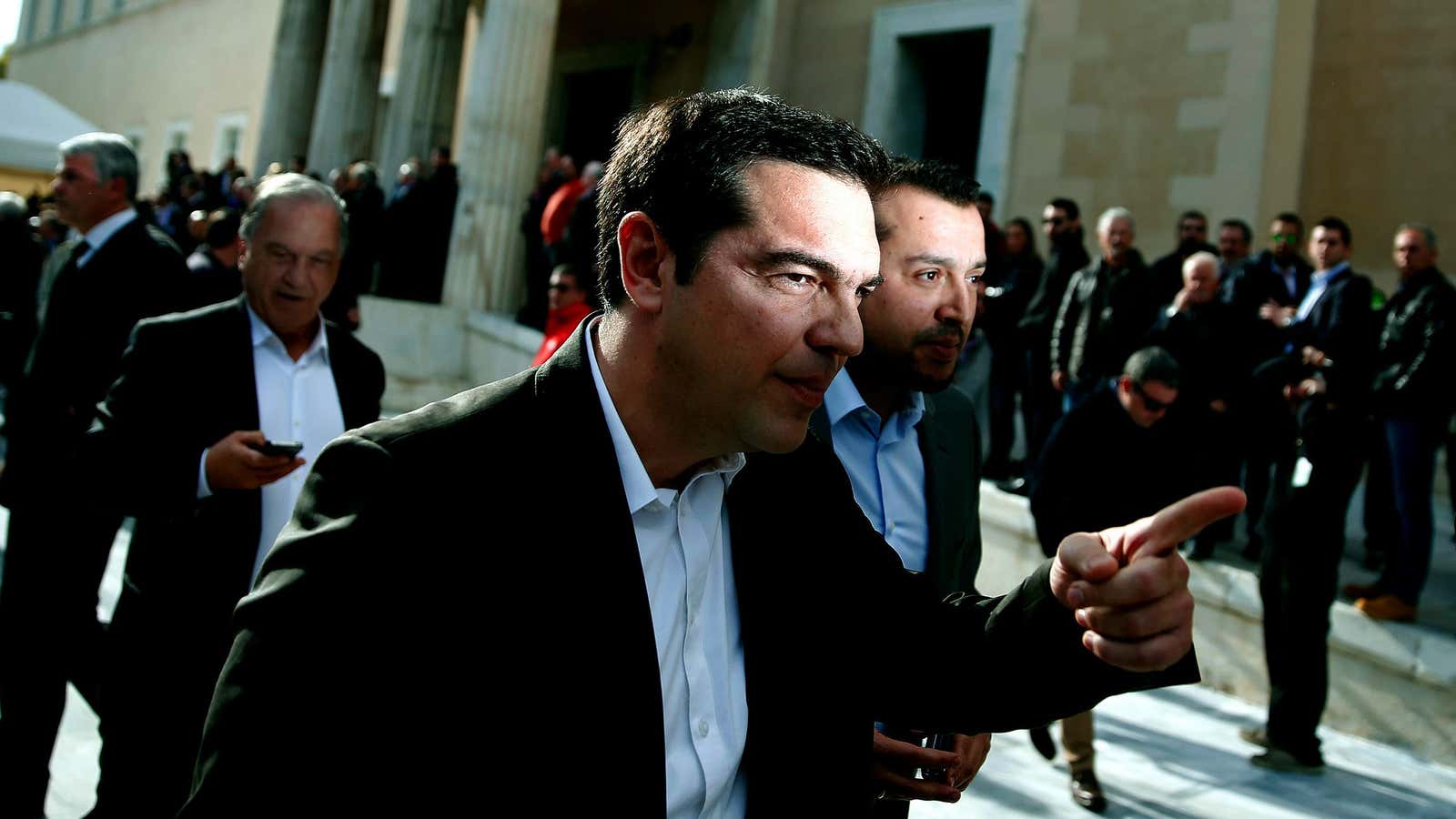Remember the exciting days when elections in Greece could leave the global economy shuddering? It might be back to the future in 2015.
On Monday, the Greek parliament failed to agree on a nominee for the largely ceremonial position of president, prompting a snap election for early 2015. That election has a good chance of putting a left-wing party, Syriza, in power, which in turn would put the European bailout of Greek debt under significant pressure.
Recall that since 2010, Greece has been the recipient—or victim, depending on your narrative—of various forms of aid from the European Union that have kept it from defaulting outright on its debt. Those rescue measures only came in return for austerity policies that prompted a crushing recession in the country, which now has an unemployment rate of 25.9%. But Greece has enough cash on hand to continue servicing its debt through the summer without tapping into its remaining rescue funds.
With the economy still struggling, elections are expected to favor Syriza over New Democracy, the center-right party currently in power. Should Syriza take over the government, it has promised to repeal a number of austerity policies and increase public spending, a move that could jeopardize the EU rescue and, in the darkest of scenarios, see default and Grexit—Greece leaving the European Union altogether.
European markets have reacted poorly to the news of a snap election, with Greek stocks falling about 5% and its bond yields rising. It’s possible that these signals could convince Greeks to get behind New Democracy and prime minister Antonis Samaras. He has pushed to end the bailout earlier than scheduled in response to Syriza’s pressure.
But if Syriza and its leader, Alexis Tsipras, win the day, it might not be the disaster some are expecting: Tsipras has been reaffirming his support for the Euro and meeting European leaders, including ECB president Mario Draghi, in an effort to lay the groundwork for negotiations, not outright default.
Many economists believe that Greece’s debt load is still unsustainable and that further relief will be necessary. But leaders in European countries, especially Germany, will be reluctant to offer any concessions at all on Greece’s debt deal. That kind of uncertainty doesn’t bode well for the still-stagnant Eurozone, especially other peripheral economies, like France and Italy, that have done little to deal with their high debt loads.
